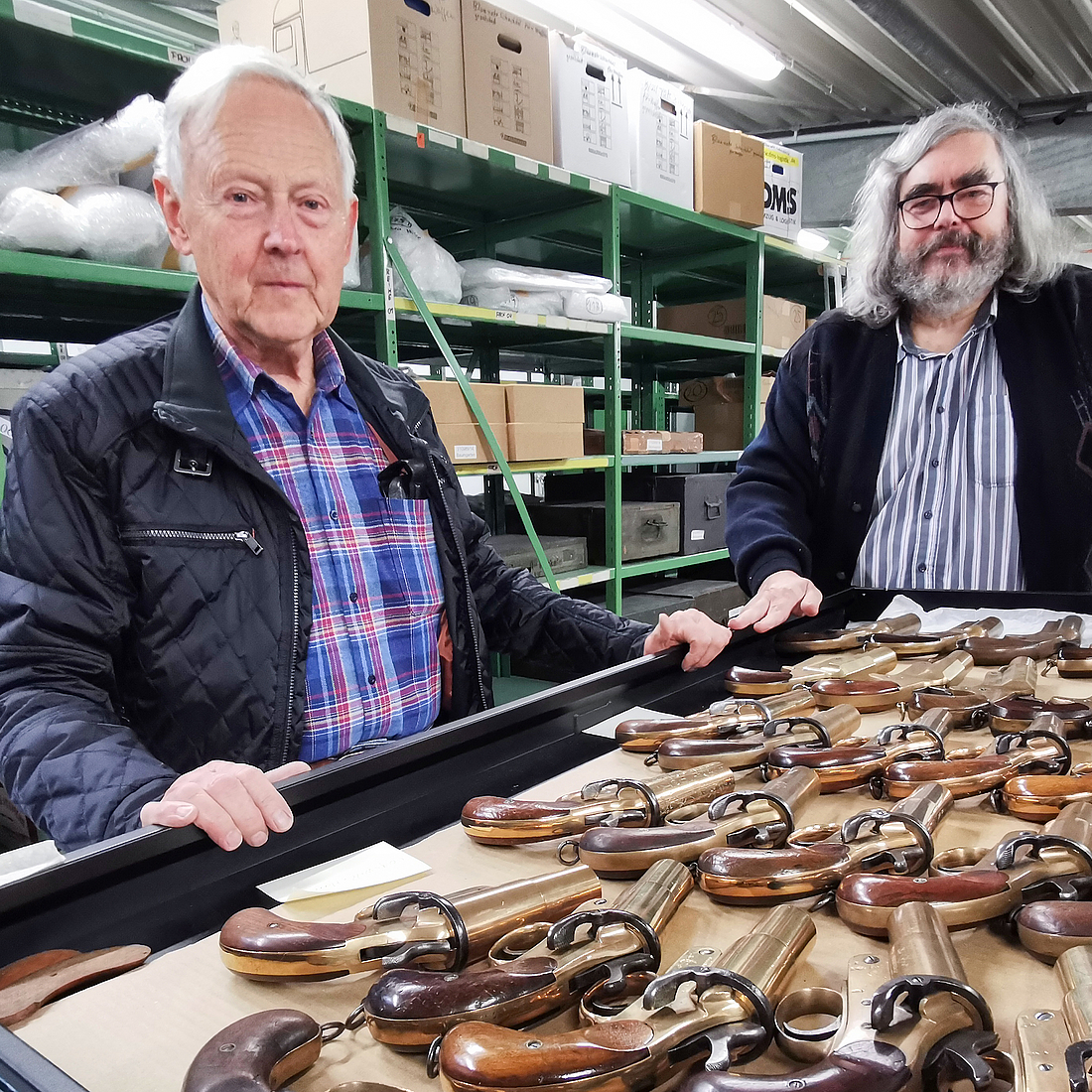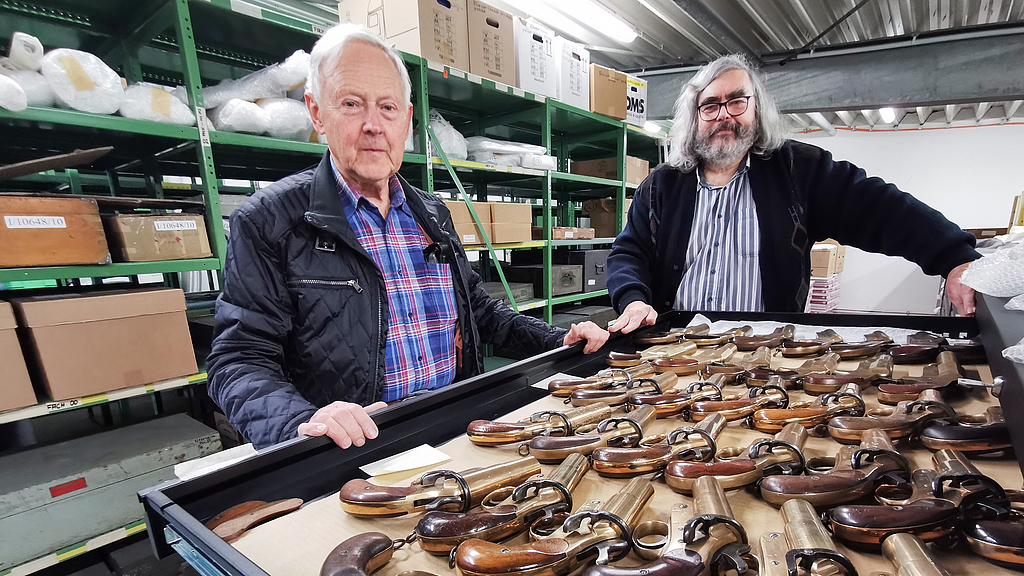International Volunteer Day on December 5: Volunteers take care of signal weapon collection
For many years, the volunteers Bernd Vogel and Bernd Kabelitz have been intensively caring for weapons that are in the inventory of the German Maritime Museum (DSM) / Leibniz Institute of Maritime History. These are not common tools of war, but weapons that save lives.
There are many legends surrounding the TITANIC: One of them says that a white distress missile fired from the CALIFORNIAN, which was in sight, was seen but not interpreted as a call for help. Bernd Kabelitz, a weapons expert at the DSM, has a guess. "White light is used to illuminate the surroundings, red is the color for danger. So the wrong color could have been the reason for the misunderstanding." The shot, which could have saved lives, fizzled out without response.
Volunteers Bernd Kabelitz and Bernd Vogel, as well as DSM employee Ingo Chmilewski, know their way around weapons, the very ones that save lives. At the DSM, they take care of signal rifles and flare pistols of all kinds. Despite new technology, there is still a signal pistol on almost every commercial vessel, which the crew can use to send a highly visible flare into the night sky in the event of a maritime accident.
"The DSM signal gun collection covers most of the known signal gun models," Kabelitz says. At least once a week, they document, catalog and preserve there. "I have covered Germany, the former GDR and France," says the 81-year-old Vogel with a grin, "the rest of the world is still ahead of me." The Bremerhaven native joined the DSM's Friends Association in the 1970s. He has been on board as a volunteer since 1998. It all started with two French percussion pistols from 1822, which he restored for the DSM. Vogel has long been interested in historic pistols and gun techniques, and came into contact with one of their greatest collectors: Dr. Bruno Baumgarten.
It was a stroke of luck for the museum, because in 2010, the major entrepreneur gave the DSM the collection of signal weapons that had been assembled over the years. From that moment on, a new life's work began for Vogel. He meticulously records origin, ammunition and caliber. The objects - historical and more recent - pose challenges for the museum. Some of them have to be stored in safes and registered with the authorities. That's where Kabelitz comes in. "I teach firearms law and expertise in the shooting field, and I'm very familiar with the legal requirements, which are very important. Every signal weapon has to be registered with the city, and in some cases with other federal agencies," says the 68-year-old former physics and chemistry teacher, who has been bringing his expertise to the DSM for four years.
Reading, exchanging ideas, and always researching - that's what makes up the everyday life of the two volunteers. "You can't do without books at all. The signal weapons belong to a very special field, which makes it exciting," says Vogel. Both see their involvement as a scholarly pursuit that keeps them mentally fit on the one hand and hits the mark on personal interest on the other. "I have been involved with military history for a long time and know many guns from books. In the museum, I experience history firsthand and can look at the exhibits up close," Kabelitz sums it up. Another aspect for both is preserving local history. "The ammunition is fireworks in chemical terms. It comes from factories that are still familiar to many Bremerhaven residents: Cordes, Comet and Sander. So we make sure that local history is preserved," Vogel said.
The commitment of the volunteers is of particular value to the DSM: "Without Mr. Vogel and Mr. Kabelitz, it would not be possible to not only record but also evaluate our weapons collection. As volunteers, they contribute their expertise and are a very valuable support in the development of the collection. Without our volunteers, we would not be able to carry out the urgently needed registration of the weapons collection," says Annika Opitz, Head of Collection Infrastructure at the DSM.


